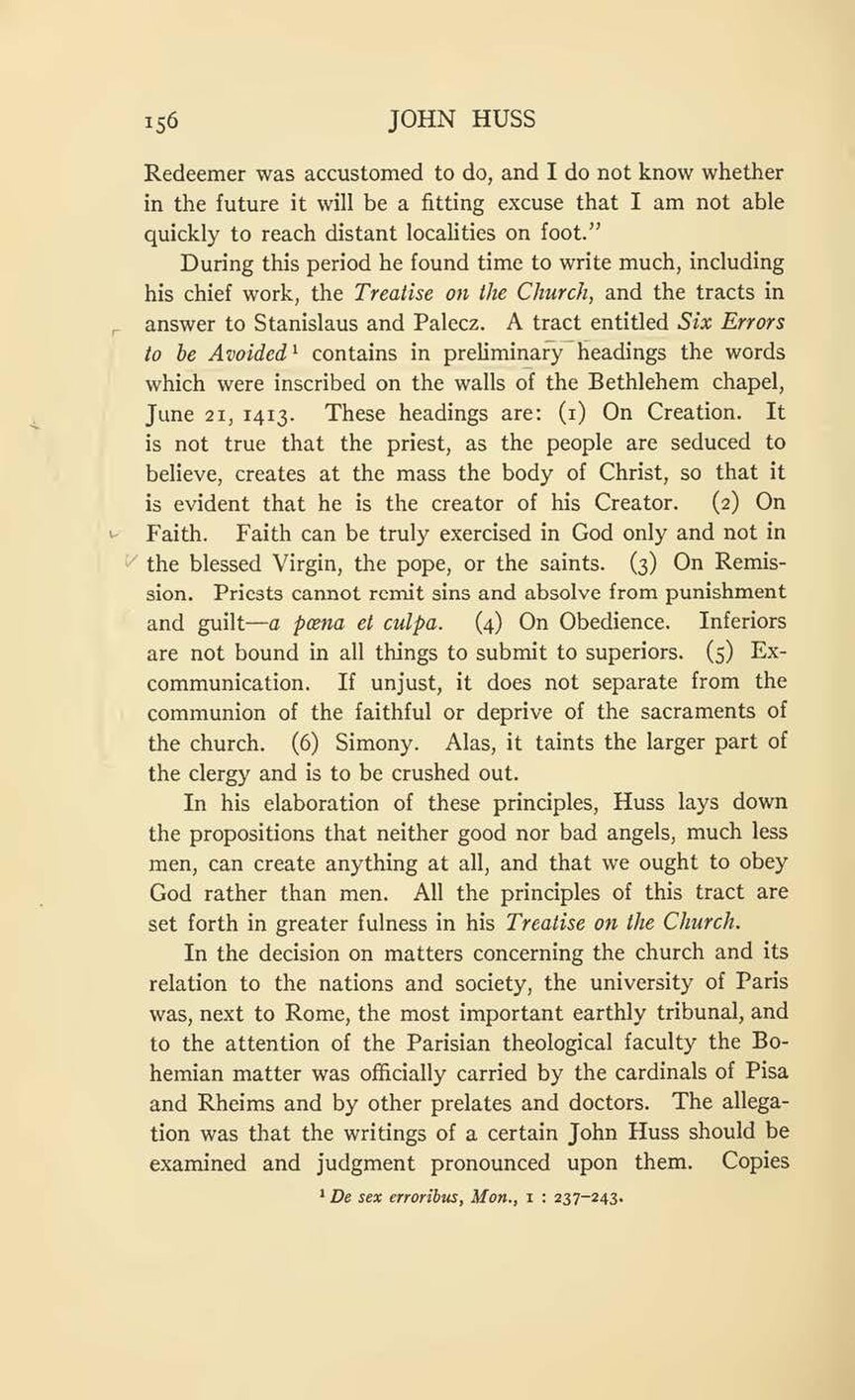Redeemer was accustomed to do, and I do not know whether in the future it will be a fitting excuse that I am not able quickly to reach distant localities on foot.”
During this period he found time to write much, including his chief work, the Treatise on the Church, and the tracts in answer to Stanislaus and Palecz. A tract entitled Six Errors to be Avoided[1] contains in preliminary headings the words which were inscribed on the walls of the Bethlehem chapel, June 21, 1413. These headings are: (1) On Creation. It is not true that the priest, as the people are seduced to believe, creates at the mass the body of Christ, so that it is evident that he is the creator of his Creator. (2) On Faith. Faith can be truly exercised in God only and not in the blessed Virgin, the pope, or the saints. (3) On Remission. Priests cannot remit sins and absolve from punishment and guilt—a pœna et culpa. (4) On Obedience. Inferiors are not bound in all things submit to superiors. (5) Excommunication. If unjust, it does not separate from the communion of the faithful or deprive of the sacraments of the church. (6) Simony. Alas, it taints the larger part of the clergy and is to be crushed out.
In his elaboration of these principles, Huss lays down the propositions that neither good nor bad angels, much less men, can create anything at all, and that we ought to obey God rather than men. All the principles of this tract are set forth in greater fulness in his Treatise on the Church. In the decision on matters concerning the church and its relation to the nations and society, the university of Paris was, next to Rome, the most important earthly tribunal, and to the attention of the Parisian theological faculty the Bohemian matter was officially carried by the cardinals of Pisa and Rheims and by other prelates and doctors. The allegation was that the writings of a certain John Huss should be examined and judgment pronounced upon them. Copies
- ↑ De sex erroribus. Mon., 1: 237–243.
